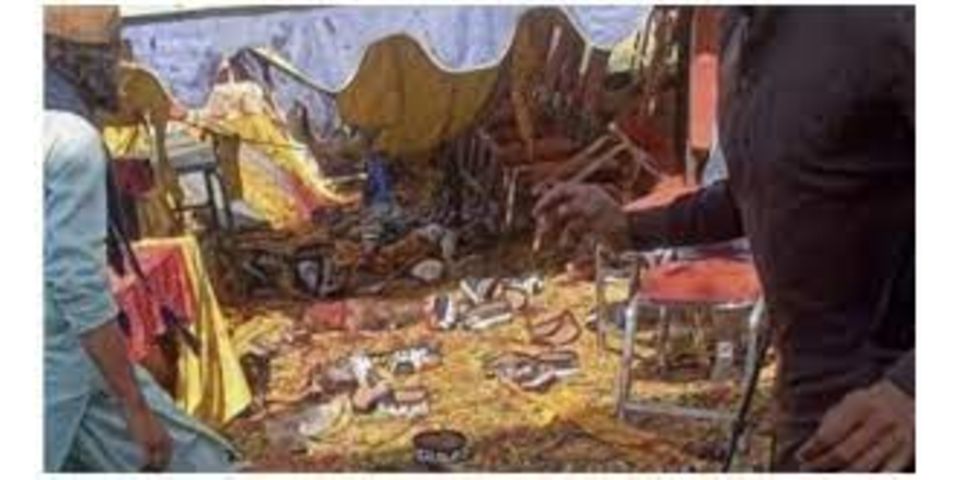Officials have confirmed that a bomb explosion at a political gathering of a radical Islamic party in northwest Pakistan on Sunday resulted in a toll of at least 39 fatalities and left scores of people wounded.
The explosion took place in the town of Khar, near the Afghanistan border, where more than 400 members and supporters of the Jamiat Ulema-e-Islam-F (JUI-F) party had gathered under a tent.
‘I can confirm that in the hospital we have 39 dead bodies, with 123 wounded that includes 17 patients in a serious condition,’ Riaz Anwar, the health minister for Khyber Pakhtunkhwa province, informed newsmen.
Haji Ghulam Ali, the Provincial Governor, officially confirmed the death toll.
The blast site images circulating on social media revealed a distressing sight of bodies scattered around, while volunteers provided assistance to blood-soaked victims.
While no group has claimed responsibility for the attack, it’s noteworthy that the local chapter of the Islamic State (IS) group has been involved in recent attacks against JUI-F.
Read also: Over 60 Killed Following Mosque Blast In Pakistan
last year, IS publicly acknowledged its involvement in violent attacks against religious scholars associated with the party, which possesses a substantial network of mosques and madrassas across the northern and western regions of the country.
The jihadist group levels accusations of hypocrisy against JUI-F, labeling it as a religious Islamic group that has backed successive governments and the military.
Since the resurgence of the Afghan Taliban in neighbouring Afghanistan in 2021, Pakistan has experienced a significant increase in attacks.
Pakistan’s indigenous Taliban group, Tehreek–e-Taliban Pakistan, has specifically directed its campaign towards security officials, with a particular focus on police officers.
A suicide bomber, connected to Pakistan’s Taliban, executed a deadly attack in January, when he detonated explosives within a mosque situated in a police compound in Peshawar, a city in the northwest, claiming the lives of over 80 officers.
The regions adjacent to Afghanistan have been the main targets of militant assaults, and Islamabad asserts that some of these attacks are being plotted on Afghan territory—a contention that Kabul disputes.
Among the seven remote districts bordering Afghanistan, Bajaur holds significance in a region that was once a focal point in the global war on terror.
Previously grappling with virtually daily bombings, Pakistan experienced a substantial improvement in the security situation due to a major military clearance operation launched in 2014.
The northwest region has been brought under the control of Pakistani authorities following the enactment of legislation in 2018, leading to a noticeable improvement in security.

